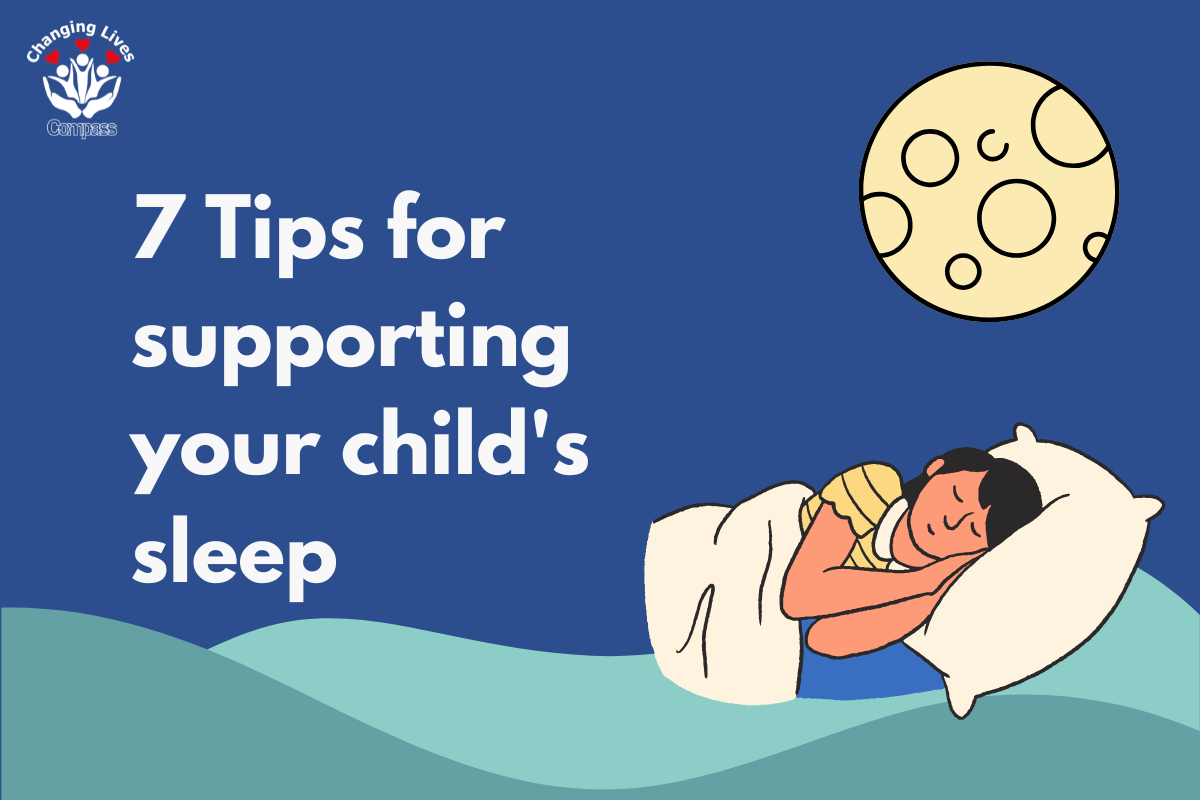
A good night’s sleep is so important to help our children’s bodies and brain recover from everything they did during the day. It helps their concentration, learning, behaviour and mental health.
Here are 7 helpful strategies to help our children’s sleep hygiene:
1. Bedroom
Make sure the light and temperature of the room is just right, not too hot or cold – being dark and quiet also helps. Some children benefit from sensory, colour-changing lighting. Cosy blankets and teddies may also help.
2. Routine
Good sleep patterns start with a good routine, for younger children this may be a bath and story or for older children a bath or shower and a quiet chat. Having a bath or shower can help our children’s bodies to cool down and relax, making them sleepy.
3. Reduce Screen Time
Mobile phones, computers and TVs keep our brains stimulated and can reduce our sleep hormone (melatonin). This makes it harder to relax. Encourage your child to come off their device an hour before bed.
4. Sleepy Foods
Try to avoid giving your child sugary food and drinks before bedtime. Instead, try and choose foods such as bananas, yoghurt, milk or cheese (no, it doesn’t give you nightmares!)
5. Exercise
Exercise each day can help children to fall asleep easily and have better quality sleep.
6. Relaxation Techniques
Practice Mindfulness and relaxation strategies with your child. Listen to calm music. Relax your bodies and concentrate on breathing. Read a book with your child or encourage them to do some mindful colouring.
7. Keep a Sleep Diary
A sleep diary can be a useful way in looking at unhelpful patterns of sleep. It can help you to introduce new and helpful ways to have a good night’s sleep, like the ones mentioned above, and see if they are working.
Remember, strategies take time!
If your child finds sleep routines challenging, continue to make small steps and changes each night until they settle into their new routine. It is important to remember that everyone is different, and it can take time to work with your child and figure out what helps them best. There are lots of reasons why our sleep can be disrupted, if you are at all worried please speak to your GP.
Back to Online Resources
